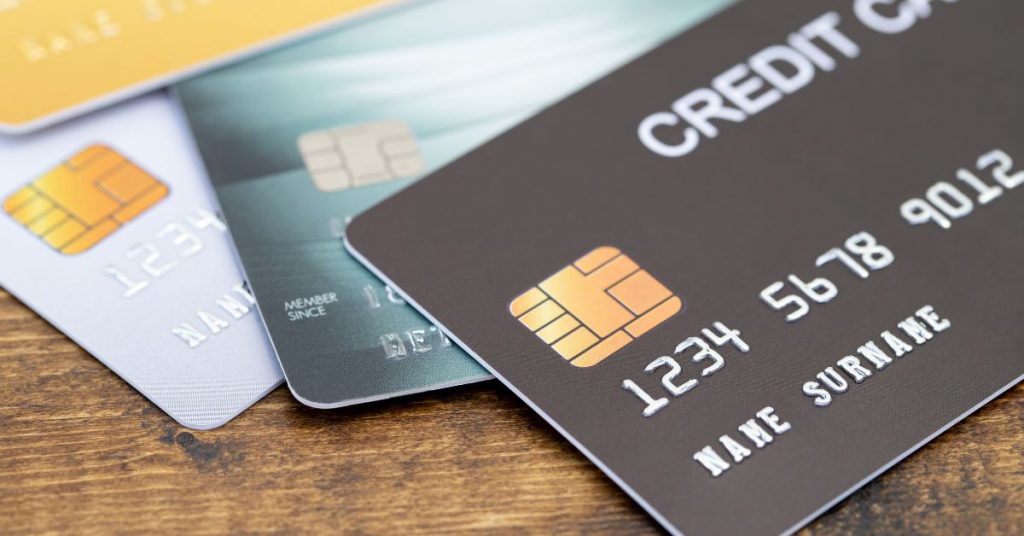What is High Risk Credit Card Processing
High risk credit card processing refers to the acceptance of credit card payments by businesses that are considered to be at a higher risk of chargebacks, fraud, or other financial risks. These businesses may include those in industries that have a higher rate of chargebacks, such as e-commerce and travel agencies, or those that are considered high risk due to their business model or the nature of their products or services, such as adult entertainment or online gambling.
Because these businesses are considered a higher risk, they may have more difficulty obtaining merchant accounts with traditional credit card processors, and may also face higher fees and rates for processing credit card payments. As a result, they may need to turn to alternative payment processors or explore alternative payment methods, such as ACH or eCheck, in order to accept credit card payments.
Obtaining a merchant account and accepting credit card payments can be a crucial part of running a successful business, but it can be especially challenging for high risk businesses.
In this article, we will explore the types of businesses that are considered high risk, the challenges that these businesses may face when it comes to credit card processing, and the solutions that are available to help them succeed.

What Is Considered High Risk For Credit Card Processing?
There are a variety of factors that can contribute to a business being considered high risk for credit card processing. Here are some common examples:
Industry
Certain industries, such as adult entertainment, online gambling, and e-cigarettes, are considered high risk due to a higher incidence of chargebacks and fraud.
Past credit history
Businesses with poor credit history may be considered high risk as they may have a higher likelihood of defaulting on payments.
High-volume sales
Companies that have a high volume of sales may be considered high risk because they represent a large potential financial loss for the merchant service provider in the event of a chargeback or refund.
Sales History
Businesses with a history of high chargebacks, fraud or disputes may be considered high risk.
Geography
Some countries or regions may be considered high risk due to a higher incidence of fraud or chargebacks.
Business Type
Some types of businesses, such as online businesses, may be considered high risk due to the potential for fraud and chargebacks.
Payment Type
Some businesses that accept recurring payments, or payments via phone or mail, may be considered high risk as these transactions may be more susceptible to fraud.
Ownership or management
Some businesses with new management or ownership may be considered high risk as they may be less established and more likely to default on payments.
Business Model
Some business models, such as multi-level marketing, may be considered high risk as they may be more susceptible to fraud.
High chargeback rates
Companies with high chargeback rates may be considered high risk because they indicate a higher likelihood of fraud or customer dissatisfaction.
High refund rates
Companies with high refund rates may be considered high risk because they indicate a higher likelihood of customer dissatisfaction.
Product liability
Companies that sell products with a high rate of product liability claims may be considered high risk because they indicate a higher likelihood of financial loss for the merchant service provider.
Risk of fraud
Businesses that have a higher risk of fraud, such as businesses that operate primarily online, may be considered high risk.
International or Offshore business
Companies that operate internationally or offshore may be considered high risk because of the increased risk of fraud and regulatory compliance issues.
Start-ups
New businesses or start-ups may be considered high risk because of a lack of history or established creditworthiness.
These factors can vary depending on the merchant service providers and different providers have different criteria for what they consider high risk. It’s important for businesses to understand their own risk profile and find a merchant service provider that is willing to work with them.
The following criteria would make a company high risk for credit card processing.
Who Is Considered A high risk merchant for credit card processing
A high-risk merchant for credit card processing is a business that is considered to have a higher likelihood of chargebacks, fraud, or other issues that may result in financial losses for the merchant service provider. Some examples of businesses that may be considered high risk for credit card processing include:
- Adult entertainment
- Online gambling
- E-cigarettes
- Travel
- Timeshares
- Online dating
- Online pharmacies
- Subscription-based businesses
- Multi-level marketing
- Online-only businesses
- Online marketplaces
- Businesses that sell virtual goods or services
- Businesses that sell digital products
- Businesses that sell tickets for events
- Businesses that sell CBD products
- Businesses that sell vaporizers
- Businesses that sell weight loss supplements
- Businesses that sell high-ticket items
- Businesses that sell items that are easily resold
- Businesses with poor credit history
- Businesses with high sales volume
- Businesses with a history of chargebacks or fraud
- Businesses that accept recurring payments
- Businesses that operate in high-risk countries or regions
- Businesses with new management or ownership
It’s important to note that this list is not exhaustive and the factors that contribute to a business being considered high risk can vary depending on the merchant service provider. Also, the risk assessment of a business can change over time, a business that was considered high risk in the past may no longer be considered high risk in the future.
How Does High Risk Credit Card Processing Work
High risk credit card processing refers to the process of accepting and processing payments from customers using credit cards for high risk businesses or transactions. Here is an overview of the steps involved in high risk credit card processing:
Application
The business owner or merchant applies for a merchant account with a high risk merchant service provider. This will typically involve providing information about the business, such as its industry, type of products or services, and expected sales volume.
Underwriting
The merchant service provider will conduct an underwriting process to assess the risk associated with the business. This may include a review of the business’s financials, credit history, and other factors.
Approval
If the merchant service provider determines that the business is a good fit for its high risk merchant account program, the application will be approved. The merchant will be provided with a merchant ID and other information needed to start accepting credit card payments.
Payment gateway
The merchant will need to set up a payment gateway, which is a secure online platform that connects the merchant’s website or point-of-sale system to the credit card processor.
Payment processing
When a customer makes a purchase using a credit card, the payment information is sent to the payment gateway, which forwards it to the credit card processor. The processor will then authorize or decline the transaction based on the customer’s available credit and the merchant’s account status.
Settlement
If the transaction is authorized, the funds will be settled in the merchant’s bank account, typically within 2-3 business days.
Chargebacks
In the event of a chargeback, which occurs when a customer disputes a charge on their credit card statement, the merchant will need to provide evidence to the merchant service provider that the charge was valid. The merchant service provider will then work with the credit card issuer to resolve the dispute.
Risk Management
High risk merchant service providers will have risk management teams that monitor the transactions and detect any fraudulent activities, in case of any suspicious activities, the account may be put on hold and the merchant will be asked to provide additional information to verify the transaction.
Note: The steps may vary depending on the merchant service provider and the specific requirements of the merchant.

Challenges of High Risk Credit Card Processing
There are several challenges that businesses may face when it comes to high risk credit card processing. Some of these challenges include:
Difficulty obtaining merchant accounts
Because they are considered a higher risk, businesses that are classified as high risk may have more difficulty obtaining merchant accounts with traditional credit card processors. This can limit their ability to accept credit card payments and may require them to turn to alternative payment processors or explore alternative payment methods.
Higher fees and rates
High risk businesses may also face higher fees and rates for credit card processing due to the increased risk they pose to the credit card processor. This can make it more expensive for these businesses to accept credit card payments and may impact their profitability.
Strict underwriting guidelines
In order to mitigate the risk of chargebacks and fraud, credit card processors may have strict underwriting guidelines for high risk businesses. This can include requirements for detailed documentation, security measures, and other measures to ensure that the business is operating in a compliant and responsible manner.
Reputation risk
Some industries that are considered high risk, such as adult entertainment or online gambling, may face negative public perception. This can make it more difficult for these businesses to build and maintain a customer base, and may also impact their ability to obtain merchant accounts or find credit card processors willing to work with them.
Limited payment options
High risk businesses may also have more limited payment options available to them, as traditional credit card processors may be unwilling to work with them. This can limit the payment options available to customers and may make it more difficult for these businesses to attract and retain customers.
Compliance issues
Some high risk businesses may be required to comply with additional regulations or requirements in order to accept credit card payments. For example, online gambling businesses may be required to have specific licenses or meet certain requirements in order to operate legally. Failing to comply with these requirements can result in additional challenges and potentially result in the loss of the ability to accept credit card payments.
Account holds and freezes
Credit card processors may place holds or freezes on the accounts of high risk businesses if they suspect fraudulent activity or if they are concerned about the risk of chargebacks. This can impact the business’s ability to accept credit card payments and may result in financial losses.
Overall, high risk credit card processing can be challenging for businesses due to the difficulties in obtaining merchant accounts, the higher fees and rates that may be involved, and the strict underwriting guidelines that may be imposed.

Solutions For High Risk Credit Card Processing
There are several solutions that businesses can explore in order to facilitate high risk credit card processing. These include:
Third-party payment processors
Third-party payment processors specialize in working with high risk businesses and may be more willing to provide merchant accounts to these businesses. These processors may have higher fees and rates than traditional credit card processors but can provide a solution for businesses that are unable to obtain merchant accounts with traditional processors.
Alternative payment methods
Businesses that are classified as high risk may also want to consider accepting alternative payment methods, such as ACH or eCheck. These payment methods can provide a secure and reliable way to accept payments and may be more readily available to high risk businesses.
Implementing fraud prevention measures
To reduce the risk of fraud and chargebacks, high risk businesses may want to implement fraud prevention measures such as using secure payment gateways, verifying customer information, and implementing security protocols. By taking these steps, businesses can reduce the risk of financial losses and improve their chances of obtaining merchant accounts with credit card processors.
Partnering with a high risk merchant services provider
Some companies specialize in providing merchant services to high risk businesses. These companies may be able to provide merchant accounts and other services to help businesses accept credit card payments.
Offering multiple payment options
By offering a range of payment options, businesses can give customers more flexibility in how they pay and may be able to attract a wider customer base. This can include accepting traditional credit cards and alternative payment methods such as ACH or eCheck.
Working with a payment facilitator
Payment facilitators are companies that provide payment processing services to businesses on behalf of other companies. These companies can provide a range of payment processing services to high risk businesses, including merchant accounts and fraud prevention measures.
Obtaining a high risk merchant account
Some merchant account providers specialize in working with high risk businesses and may be able to provide merchant accounts and other services to help businesses accept credit card payments. These merchant account providers may have higher fees and rates than traditional providers but can provide a solution for businesses that are unable to obtain merchant accounts with traditional providers.
Overall, while high risk credit card processing can present challenges, there are solutions available to help businesses succeed. By exploring alternative payment processors and payment methods, implementing fraud prevention measures, and complying with any applicable regulations, high risk businesses can accept credit card payments and grow their business.
How To Get Around Credit Card Processing For High Risk
There are a few ways to get around credit card processing for high-risk businesses, but it’s important to note that these options may come with additional fees or limitations. Some ways to get around credit card processing for high-risk businesses include:
Using a high-risk merchant account
Some merchant service providers offer specialized high-risk merchant accounts that are specifically designed for high-risk businesses. These accounts may come with higher fees and more stringent requirements, but they can help businesses get around the limitations imposed by traditional merchant accounts.
Using a payment gateway
Some businesses may choose to use a payment gateway, which acts as an intermediary between the business and the merchant service provider. Payment gateways can help businesses get around the limitations imposed by traditional merchant accounts by allowing them to process payments through a third-party provider.
Using alternative payment methods
Some businesses may choose to use alternative payment methods, such as e-checks or ACH payments, to get around the limitations imposed by traditional merchant accounts.
Using offshore merchant account
Some businesses may choose to use an offshore merchant account, which is a merchant account that is based in a foreign country. Offshore merchant accounts can help businesses get around the limitations imposed by traditional merchant accounts by allowing them to process payments through a foreign-based provider.
Partnering with a high-risk merchant service provider
Some businesses may choose to partner with a high-risk merchant service provider, which specializes in working with high-risk businesses. These providers may have more lenient requirements and may be more willing to work with businesses that have been turned down by other providers.
It’s important to note that these options may not be suitable for all high-risk businesses and it’s important for businesses to do their research to find the best solution for them. Also, these options may come with additional fees and limitations, and it is important to understand the terms and conditions before signing up for any service.
High Risk Credit Card Processing Fees
High risk credit card processing fees refer to the additional costs associated with accepting and processing credit card payments for businesses that are considered high risk. The fees can vary depending on the merchant service provider and the specific requirements of the merchant. Here are some of the common fees associated with high risk credit card processing:
Setup fee
Some merchant service providers may charge a one-time setup fee to cover the cost of underwriting and approving the merchant’s application.
Monthly fee
Many merchant service providers charge a monthly fee to cover the cost of maintaining and monitoring the merchant’s account.
Transaction fee
This is a fee that is charged for each credit card transaction processed by the merchant service provider. The fee is typically a percentage of the total transaction amount, plus a fixed amount per transaction.
Chargeback fee
A chargeback fee is a fee that is charged to the merchant when a customer disputes a charge on their credit card statement. This fee is typically assessed by the merchant service provider to cover the cost of investigating and resolving the dispute.
Rolling reserve
Some high risk merchant service providers may require the merchant to hold back a percentage of their sales each month, and hold it for a period of time, this is called rolling reserve, it is used as a protection against chargebacks, frauds, and other financial risks.
PCI Compliance fee
PCI DSS (Payment Card Industry Data Security Standard) is a set of security standards that merchants must comply with to process credit card payments. Some merchant service providers may charge a fee to help merchants comply with these standards.
Early termination fee
Some merchant service providers charge an early termination fee if the merchant closes their account before the end of the contract term.
Monthly minimum fee
Some merchant service providers charge a monthly minimum fee if the merchant’s total transaction volume falls below a certain threshold.
Equipment costs
Some merchant service providers may charge extra fees for the cost of equipment necessary to process the transactions, such as a credit card terminal or a virtual terminal.
It’s important to note that the fees and rates can vary depending on the merchant service provider and the specific requirements of the merchant. It’s always recommended to shop around and compare different merchant service providers before choosing one for your high risk business.

How ExpoNovum Can Help You In High Risk Credit Card Processing
ExpoNovum provides high risk credit card processing solutions to businesses that are classified as high risk. High risk businesses may face challenges in obtaining merchant accounts with traditional credit card processors and may also face higher fees and rates for credit card processing. ExpoNovum can help these businesses by providing merchant accounts and other payment processing services that are tailored to the needs of high risk businesses.
ExpoNovum offers a range of services to help businesses with high risk credit card processing, including:
Merchant accounts
ExpoNovum can provide merchant accounts to high risk businesses, allowing them to accept credit card payments from customers.
Alternative payment methods
ExpoNovum also offers alternative payment methods, such as ACH or eCheck, which can provide a secure and reliable way for businesses to accept payments.
Fraud prevention measures
To reduce the risk of fraud and chargebacks, ExpoNovum offers a range of fraud prevention measures to help businesses protect their finances and comply with industry regulations.
Overall, ExpoNovum can help businesses with high risk credit card processing by providing merchant accounts, alternative payment methods, and fraud prevention measures to help these businesses succeed.
Frequently Asked Questions
What Does High Risk processing Mean?
High risk processing typically refers to financial transactions or activities that involve a higher level of potential risk or fraud. This can include credit card transactions, online payments, and large money transfers. Financial institutions and companies may have different policies and procedures in place to identify and mitigate potential risks associated with these types of transactions.
What Are High Risk Processing Activities?
High-risk processing activities are financial transactions or activities that are considered to be at a higher risk of fraud or other types of financial crimes. Some examples of high-risk activities include:
- Online gambling or gaming
- Adult entertainment
- Travel and timeshare
- Pharmaceutical sales
- Online dating
- High-ticket items or luxury goods
- Multi-level marketing or pyramid schemes
- Subscription-based services
- Virtual currency or bitcoin
- Credit repair or debt consolidation services
Financial institutions and companies may have different policies and procedures in place to identify and mitigate potential risks associated with these types of transactions. These activities are considered high risk because they are more susceptible to fraud, chargebacks, and other types of financial crime.
Why Are Hoverboards High Risk Credit Card Processing
Hoverboards may be considered high risk for credit card processing due to a few reasons:
- High chargeback rates: Hoverboards have been known to have a high rate of chargebacks, which occur when a customer disputes a charge with their credit card issuer. High chargeback rates can indicate a higher likelihood of fraud or customer dissatisfaction.
- Product liability: Hoverboards have been known to have a high rate of product liability claims, which occur when a customer is injured or experiences damage due to a defect in the product. High product liability claims can indicate a higher likelihood of financial loss for the merchant service provider.
- Reputation: Hoverboards have been known to have a negative reputation as a high-risk product, as they have been involved in many safety issues and recalls. A negative reputation can indicate a higher likelihood of financial loss for the merchant service provider.
- Quality Control: Hoverboards have been known to have a high rate of quality control issues, which can indicate a higher likelihood of financial loss for the merchant service provider.
- Shipping Delays: Hoverboards have been known to have a high rate of shipping delays, which can indicate a higher likelihood of financial loss for the merchant service provider.
Due to these factors, merchant service providers may view hoverboard businesses as high risk Credit Card Processing, and may charge higher fees or have more stringent requirements in order to process their credit card transactions. Additionally, they may be less likely to approve a merchant account for these types of businesses.
I have read your article carefully and I agree with you very much. This has provided great help for my thesis writing, and I will seriously improve it.
Thanks